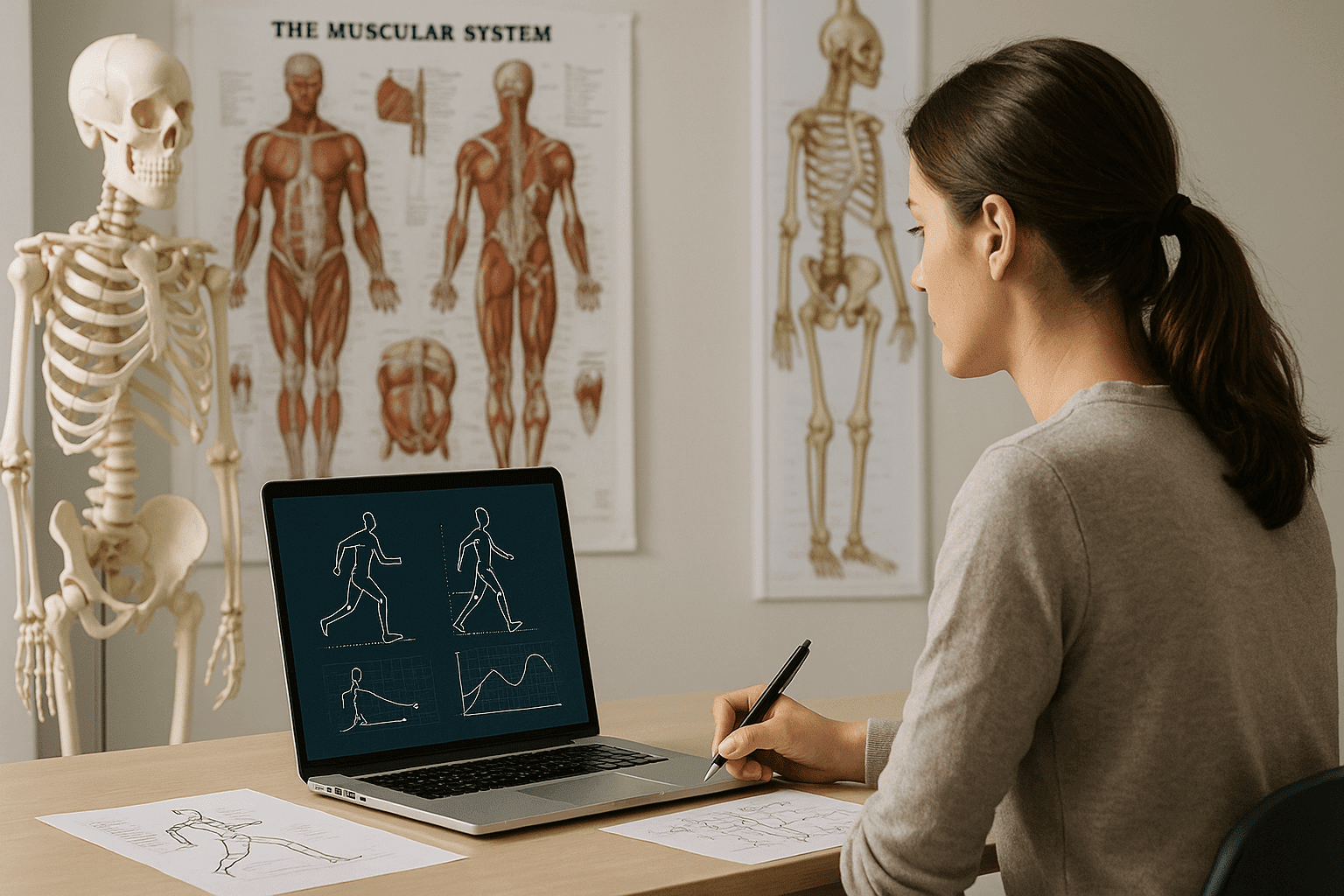Course Features
Price
Study Method
Online | Self-paced
Course Format
Reading Material - PDF, article
Duration
2 hours, 55 minutes
Qualification
No formal qualification
Certificate
At completion
Additional info
Coming soon
- Share
Overview
The Medication Administration course provides a comprehensive overview of the essential practices required to safely handle, administer, and manage medications in social care and healthcare settings. The course begins with an introduction to the safe handling of medicines, emphasizing the importance of hygiene, safety protocols, and risk mitigation when managing medications. Learners will explore the key principles of medicine risk assessment, learning how to identify potential risks and apply strategies to minimize harm to patients or clients.
A significant portion of the course is dedicated to handling medicines in social care settings, where students will learn the specific guidelines and procedures for administering medications in residential homes, assisted living facilities, and other care environments. Additionally, the course addresses the ethical and legal aspects of medication administration, including the necessity of obtaining informed consent to treatment and understanding the requirements for specific services that may involve the administration of medications.
The course emphasizes the “6 Rights” of medication administration, ensuring learners understand how to safely administer the right medication, to the right person, at the right time, through the right route, in the right dose, and with the right documentation. The covert administration of medicine is also discussed, which focuses on the delicate balance of patient rights and care in situations where direct consent cannot be obtained.
Proper documentation and recording procedures are covered in detail, teaching learners how to maintain accurate, up-to-date records that meet regulatory and legal standards. The course also provides guidelines for the storage of medicines, emphasizing the need to keep them safe, secure, and at the correct temperature. Additionally, learners will be taught how to appropriately transfer and dispose of medications to avoid misuse or contamination. The final part of the course explores drug formulations and the various ways medications can be administered, providing students with a comprehensive understanding of the different forms and methods of taking medicines.
Who is this course for?
The Medication Administration course provides a comprehensive overview of the essential practices required to safely handle, administer, and manage medications in social care and healthcare settings. The course begins with an introduction to the safe handling of medicines, emphasizing the importance of hygiene, safety protocols, and risk mitigation when managing medications. Learners will explore the key principles of medicine risk assessment, learning how to identify potential risks and apply strategies to minimize harm to patients or clients.
A significant portion of the course is dedicated to handling medicines in social care settings, where students will learn the specific guidelines and procedures for administering medications in residential homes, assisted living facilities, and other care environments. Additionally, the course addresses the ethical and legal aspects of medication administration, including the necessity of obtaining informed consent to treatment and understanding the requirements for specific services that may involve the administration of medications.
The course emphasizes the “6 Rights” of medication administration, ensuring learners understand how to safely administer the right medication, to the right person, at the right time, through the right route, in the right dose, and with the right documentation. The covert administration of medicine is also discussed, which focuses on the delicate balance of patient rights and care in situations where direct consent cannot be obtained.
Proper documentation and recording procedures are covered in detail, teaching learners how to maintain accurate, up-to-date records that meet regulatory and legal standards. The course also provides guidelines for the storage of medicines, emphasizing the need to keep them safe, secure, and at the correct temperature. Additionally, learners will be taught how to appropriately transfer and dispose of medications to avoid misuse or contamination. The final part of the course explores drug formulations and the various ways medications can be administered, providing students with a comprehensive understanding of the different forms and methods of taking medicines.
Requirements
The Medication Administration course provides a comprehensive overview of the essential practices required to safely handle, administer, and manage medications in social care and healthcare settings. The course begins with an introduction to the safe handling of medicines, emphasizing the importance of hygiene, safety protocols, and risk mitigation when managing medications. Learners will explore the key principles of medicine risk assessment, learning how to identify potential risks and apply strategies to minimize harm to patients or clients.
A significant portion of the course is dedicated to handling medicines in social care settings, where students will learn the specific guidelines and procedures for administering medications in residential homes, assisted living facilities, and other care environments. Additionally, the course addresses the ethical and legal aspects of medication administration, including the necessity of obtaining informed consent to treatment and understanding the requirements for specific services that may involve the administration of medications.
The course emphasizes the “6 Rights” of medication administration, ensuring learners understand how to safely administer the right medication, to the right person, at the right time, through the right route, in the right dose, and with the right documentation. The covert administration of medicine is also discussed, which focuses on the delicate balance of patient rights and care in situations where direct consent cannot be obtained.
Proper documentation and recording procedures are covered in detail, teaching learners how to maintain accurate, up-to-date records that meet regulatory and legal standards. The course also provides guidelines for the storage of medicines, emphasizing the need to keep them safe, secure, and at the correct temperature. Additionally, learners will be taught how to appropriately transfer and dispose of medications to avoid misuse or contamination. The final part of the course explores drug formulations and the various ways medications can be administered, providing students with a comprehensive understanding of the different forms and methods of taking medicines.
Career path
The Medication Administration course provides a comprehensive overview of the essential practices required to safely handle, administer, and manage medications in social care and healthcare settings. The course begins with an introduction to the safe handling of medicines, emphasizing the importance of hygiene, safety protocols, and risk mitigation when managing medications. Learners will explore the key principles of medicine risk assessment, learning how to identify potential risks and apply strategies to minimize harm to patients or clients.
A significant portion of the course is dedicated to handling medicines in social care settings, where students will learn the specific guidelines and procedures for administering medications in residential homes, assisted living facilities, and other care environments. Additionally, the course addresses the ethical and legal aspects of medication administration, including the necessity of obtaining informed consent to treatment and understanding the requirements for specific services that may involve the administration of medications.
The course emphasizes the “6 Rights” of medication administration, ensuring learners understand how to safely administer the right medication, to the right person, at the right time, through the right route, in the right dose, and with the right documentation. The covert administration of medicine is also discussed, which focuses on the delicate balance of patient rights and care in situations where direct consent cannot be obtained.
Proper documentation and recording procedures are covered in detail, teaching learners how to maintain accurate, up-to-date records that meet regulatory and legal standards. The course also provides guidelines for the storage of medicines, emphasizing the need to keep them safe, secure, and at the correct temperature. Additionally, learners will be taught how to appropriately transfer and dispose of medications to avoid misuse or contamination. The final part of the course explores drug formulations and the various ways medications can be administered, providing students with a comprehensive understanding of the different forms and methods of taking medicines.
-
-
- Medicine Risk Assessment Guidance 00:10:00
- Handling Medicines in Social Care Settings 00:10:00
- Requirements for Specific Services 00:10:00
- Rights of Medication Administration 00:10:00
- Recording Procedures 00:10:00
- Transfer and Disposal of Medicine 00:10:00
- Exam of Medication Administration 00:50:00

No Reviews found for this course.
Is this certificate recognized?
Yes, our premium certificate and transcript are widely recognized and accepted by embassies worldwide, particularly by the UK embassy. This adds credibility to your qualification and enhances its value for professional and academic purposes.
I am a beginner. Is this course suitable for me?
Yes, this course is designed for learners of all levels, including beginners. The content is structured to provide step-by-step guidance, ensuring that even those with no prior experience can follow along and gain valuable knowledge.
I am a professional. Is this course suitable for me?
Yes, professionals will also benefit from this course. It covers advanced concepts, practical applications, and industry insights that can help enhance existing skills and knowledge. Whether you are looking to refine your expertise or expand your qualifications, this course provides valuable learning.
Does this course have an expiry date?
No, you have lifetime access to the course. Once enrolled, you can revisit the materials at any time as long as the course remains available. Additionally, we regularly update our content to ensure it stays relevant and up to date.
How do I claim my free certificate?
I trust you’re in good health. Your free certificate can be located in the Achievement section. The option to purchase a CPD certificate is available but entirely optional, and you may choose to skip it. Please be aware that it’s crucial to click the “Complete” button to ensure the certificate is generated, as this process is entirely automated.
Does this course have assessments and assignments?
Yes, the course includes both assessments and assignments. Your final marks will be determined by a combination of 20% from assignments and 80% from assessments. These evaluations are designed to test your understanding and ensure you have grasped the key concepts effectively.
Is this course accredited?
We are a recognized course provider with CPD, UKRLP, and AOHT membership. The logos of these accreditation bodies will be featured on your premium certificate and transcript, ensuring credibility and professional recognition.
Will I receive a certificate upon completion?
Yes, you will receive a free digital certificate automatically once you complete the course. If you would like a premium CPD-accredited certificate, either in digital or physical format, you can upgrade for a small fee.
Course Features
Price
Study Method
Online | Self-paced
Course Format
Reading Material - PDF, article
Duration
2 hours, 55 minutes
Qualification
No formal qualification
Certificate
At completion
Additional info
Coming soon
- Share
Biomechanics Level 3 Advanced Diploma
Course Line240£490.00Original price was: £490.00.£14.99Current price is: £14.99.Animal Behaviour And Psychology
Course Line272£490.00Original price was: £490.00.£14.99Current price is: £14.99.Calligraphy Level 3 Advanced Diploma
Course Line237£490.00Original price was: £490.00.£14.99Current price is: £14.99.





